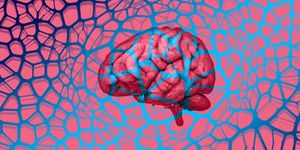Researchers at Washington University School of Medicine discovered a biomarker identifying people with a primary tauopathy called corticobasal degeneration (CBD). This method is almost 89% accurate, whereas traditional diagnostic methods for CBD are only 25% to 50% accurate. The biomarker could be developed into a tool to screen potential volunteers for CBD-specific research studies and clinical trials. The results were published in Nature Medicine.
CBD is one of about two dozen tauopathies or neurological disorders in which toxic tau accumulates in the brain. Individual tauopathies feature different tau subtypes and different brain cell and tissue damage patterns. Symptoms of the various tauopathies overlap, which makes accurate diagnosis challenging for doctors.
Two particular forms of tau called the microtubule-binding region (MTBR)-tau 275 and MTBR-tau 28 are extremely high in the brains and low in the cerebrospinal fluid of patients with CBD. Depending on the type of neurological disease, these forms of tau distinguish people with CBD from those with other primary tauopathies with 84% to 89% accuracy.
Scientists are developing several experimental drugs that target tau. Most drugs were designed with Alzheimer’s patients in mind, but they hold some promise as therapies for primary tauopathies. This technique could be used to find biomarkers for other primary tauopathies. These developments are critical because researchers did not have a specific biomarker to diagnose patients until now accurately. According to study author Dr. Adam Boxer, “This new biomarker also opens the door to testing many new tau-directed therapies for CBD, because it may allow us to directly measure the ability of these treatments to lower toxic tau protein levels in patients’ brains.” This discovery can potentially accelerate the development of innovative drug therapies.
Treatment options are limited for dementia patients, and many medications have severe or fatal complications. Scientists have been exploring CBD for managing dementia symptoms since it has successfully reduced dementia patients’ irritation and agitation while improving sleep.
Sources: Nature Medicine, Medical News Today, Washington University School of Medicine




